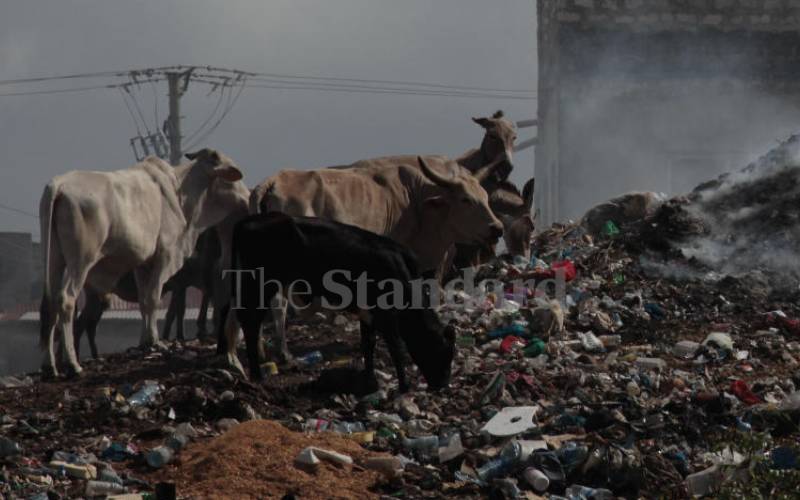×
The Standard e-Paper
Stay Informed, Even Offline

Livestock feeding on garbage at a dumping site in Lamu. [Elvis Ogina, Standard]
The 5th session of United Nation Environment Assembly (UNEA) that will be held in Nairobi from February 28 provides an opportunity for governments to step up efforts to protect and restore the natural world on which our economies and societies depend.